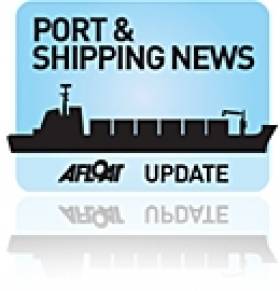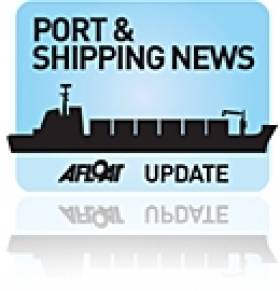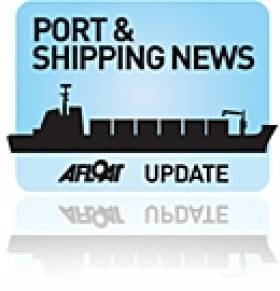Displaying items by tag: Newbuildings
Ports & Shipping Review: Port Sector Meeting, Maersk Join Rivals,Asia-Europe Trade Up, US Training Ship and Newbuild High
#ShippingReview: Over the last fortnight Jehan Ashmore has reported from the shipping scene where European port representatives and trade unions met for the first Sectorial Social Dialogue Committee for the Port Sector.
AP Moeller-Maersk A/S the World's largest container line, said it will pool vessels with its two biggest rivals in an effort to manage overcapacity and raise unprofitable freight rates.
Volumes from Asia to Europe grew just 0.1% in the first four months of the year to 4.4m TEU, according to the latest figures from Container Trades Statistics. This growth was mainly fuelled by an up-lift in Asia to Mediterranean services, with volumes declining from Asia to north Europe.
US training ship T.S. Empire State (1962/14,557grt) made a visit to Dublin Port having crossed the Atlantic Ocean. The veteran vessel, a former general cargo ship dates back to the era before containerisation.
Orders for newbuildings reached a two year high, with 222 ships of over 15m dwt in May, a level not seen since May 2011.
#NEWBUILD BULKER ORDER– Irish based d'Amico Dry with offices in Dublin, has ordered six 40,000 dwt bulk carrier newbuildings, with options for further six vessels, from China's Yangfan Group.
The company which is a fully owned subsidiary of the d'Amico group, has made the $134m deal, which values each handymax at $22.3m. The order for the new ships has been financed through bank lending.
Chief executive of d'Amico Cesare d'Amico said: "The new vessels will strengthen our position in the handysize market, which we feel has a great capacity for future growth, and also demonstrate our commitment to the environment by significantly reducing fuel consumption and exhaust emissions when compared with both existing vessels, and other newbuilding designs available.
He added "Given their characteristics, the vessels have also attracted strong interest from the financial world and, as a consequence, financing for the project has been offered by a number of European banks at very competitive pricing compared to today's market terms."
The newbuildings were designed by Deltamarin of Finland and optimised to meet d'Amico's requirements, including construction of box-shaped holds. Delivery for the new vessels is scheduled from mid-2014 from the Yangfan's Zhoushan shipyard. The Italian shipowning group also has the option from the shipyard to build the new vessels but to a fully open hatch design.
D'Amico Tankers Ltd, control either through ownership or charter arrangements a modern, high-tech and double-hulled fleet ranging from 35,000 to 52,000 deadweight tons. These product tankers operate in a sector that typically carry refined petroleum products, chemical and vegetable oils.
The company has a long tradition of family enterprise and operates worldwide with offices also in London, Monaco and Singapore.
Mainport to Invest in Survey Supply Vessels for Exploration Industry
#PORTS & SHIPPING - Cork based marine services company, Mainport is investing $36 million (€27.6 million) to build three supply vessels which will support seismic survey ships searching for oil and gas deposits.
The bulk of the financing for the construction of the newbuildings has been provided by Dutch bank ABN Amro, with a syndicate of Irish investors assembled by Westboro Finance in Cork providing $5 million in mezzanine, or short-term, financing.
The three ships, which will provide support services for an unnamed client carrying out off-shore seismic surveys around the world, are being constructed at Shin Yang Shipyards in Malaysia, and will be delivered in mid-2013.
To read more about this report in today's Irish Times click HERE


























































